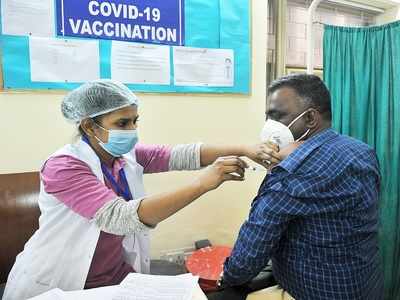Biggest health issue today
What is The Biggest Health Issue Today?: A Challenge and an Opportunity – While medical advancements have led to longer lifespans, chronic diseases continue to plague a significant portion of the U.S. population.
These conditions, often preventable, create a heavy burden on individuals and healthcare systems alike. However, researchers at the National Institutes of Health (NIH) are on the frontlines of tackling these challenges.
Heart Disease and Stroke: A Persistent Threat
- Why it’s a major health issue: heart disease and stroke remain the leading causes of death in the United States, claiming countless lives each year. These conditions can be debilitating, causing significant physical limitations and impacting quality of life.
- The NIH response: Researchers are using precision medicine, a personalized approach that considers individual factors, to gain a deeper understanding of how to manage these conditions more effectively.
Progress Made, But More Needed
Heart attacks used to be a major killer, especially for men. Thanks to research, we now know more about what causes heart disease and stroke, including things like smoking, high cholesterol, and diabetes.
We’ve also found ways to lower these risks, such as medicine and healthy habits like exercise and eating right. As a result, heart disease deaths have gone way down!
Strokes are still a problem, though. They can cause serious damage and happen very often. But there’s good news here too. Doctors can now use clot-busting drugs and special tools to remove clots from the brain, which helps prevent further damage. There’s even a campaign to help people recognize a stroke as an emergency and get help right away.
Even though progress has been made, heart disease and stroke are still leading causes of death. Scientists are looking for even better ways to prevent, diagnose, and treat these conditions. They’re using new ideas like precision medicine, which takes into account a person’s unique genes and lifestyle to create the best treatment plan.
Cancer Rates are Falling, But the Fight Continues
- Why it’s a major health issue: Cancer is a prevalent and often-feared disease, with over 1.6 million new diagnoses annually. The physical, emotional, and financial toll of cancer is immense, affecting not only patients but also their loved ones.
- The NIH response: While new cases are declining thanks in part to NIH research, the relentless pursuit of a cure and more effective treatments continues.
Other Biggest Health Issues Today
Cancer: Scary Disease, But We’re Making Strides
Cancer is a scary illness that affects millions of people each year. The good news is that thanks to research, the number of new cases and deaths from cancer is actually going down! Over the past few years, cancer death rates have dropped by 25%.
This progress is due in part to a new way of understanding cancer. Scientists used to think of cancer as a disease of specific organs, but now they know it’s more about changes in a person’s genes. This new knowledge has led to exciting new drugs like pembrolizumab.
This medication helps a person’s own immune system fight cancer cells. It’s already used for some cancers and is special because it can treat tumors anywhere in the body, as long as they have certain genetic features. This is a great example of how genetics is changing the way we fight cancer.
There’s still a lot of work to be done though. Scientists are constantly testing new treatments and figuring out the best ways to combine different therapies. They’re also working with other organizations to speed up cancer research and make more treatments available to more people. The goal is not only to treat cancer, but also to prevent it and find it early when it’s easier to cure.
Combating the Opioid Crisis: A Growing Scourge
- Why it’s a major health issue: Opioid addiction is a major public health concern. It can lead to devastating consequences, including overdose deaths, ruined relationships, and lost productivity.
- The NIH response: NIH-supported research has yielded effective strategies for preventing addiction, treating those struggling with it, and saving lives. These advancements offer a glimmer of hope in this critical area.
Opioid Addiction: A Serious Problem, But There’s Hope
In the past, we thought people could just stop using drugs if they tried hard enough. Now we know that drugs change the brain, making it harder to quit. This is especially true for opioids, which include prescription pain meds, heroin, and fentanyl.
Opioid addiction is a huge problem in the United States, affecting many people, including veterans. It also costs a lot of money.
The good news is that researchers have found ways to help. There’s a spray called NARCAN® that can save someone from an opioid overdose. Scientists are also working on new medications and other treatments to fight addiction.
Another challenge is finding ways to manage chronic pain without addictive drugs. Researchers are studying different options, like yoga, acupuncture, and therapy, to help people feel better without relying on opioids.
New Weapons Against Infectious Diseases: A Race Against Time
- Why it’s a major health issue: The rise of antibiotic-resistant microbes is a growing threat. These “superbugs” become increasingly difficult to treat with traditional antibiotics, potentially leading to untreatable infections.
- The NIH response: NIH scientists are actively researching ways to understand and combat this resistance. They are developing new diagnostic tools for faster detection and novel antibiotics and vaccines to stay ahead of this evolving challenge.
Infectious Diseases: Old Threats, New Challenges
Every year, millions of Americans get sick from infections. The good news is that we often know what causes these infections and have ways to fight them with things like vaccines and antibiotics.
One big concern is antibiotic resistance. This means germs become stronger and can’t be stopped by the medicines we used to use. Scientists are working hard to understand why this happens and find new ways to fight infections, including better ways to test for resistance and even new antibiotics and vaccines.

New and surprising diseases can also pop up, like Ebola. This virus caused a major outbreak in Africa a few years ago. NIH is prepared for such surprises by doing research on germs and the immune system so they can react quickly. They even have a special hospital to care for people with dangerous infections.
HIV/AIDS is another serious infectious disease. Millions of people have been infected worldwide, but thanks to research, there’s hope for an AIDS-free generation. We now have treatments that can help people with HIV live long, healthy lives and prevent them from spreading the virus to others.
The ultimate goal is to create a vaccine that protects people from getting HIV in the first place. Even a partially effective vaccine could drastically reduce new infections.
Diabetes: Hope on the Horizon for a Widespread Condition
- Why it’s a major health issue: Diabetes impacts a staggering 30 million Americans, significantly impacting their health and well-being. Left unmanaged, it can lead to serious complications like heart disease, blindness, and kidney failure.
- The NIH response: Technological advancements funded by the NIH offer promising solutions for managing and potentially preventing diabetes. This research offers a beacon of hope for millions living with this chronic condition.
Diabetes: Millions Affected, But There’s Hope
Diabetes is a condition that affects 30 million Americans of all ages. There are two main types:
- Type 1 diabetes: The body doesn’t make enough insulin, a hormone that helps control blood sugar.
- Type 2 diabetes: The body either doesn’t use insulin properly or doesn’t make enough of it.
Researchers have developed a “bionic pancreas” to help people with type 1 diabetes manage their blood sugar levels. It’s a small device that works with a smartphone app to monitor blood sugar and deliver insulin when needed.
For type 2 diabetes, there’s good news too. While genes play a role, healthy habits like eating right and exercising can significantly reduce the risk of getting it.
Scientists are also using new technology to learn more about diabetes. They’ve identified different subtypes of type 2 diabetes, which might cause different health problems. This information could help doctors create personalized treatment plans for each patient in the future.
In conclusion, while all the health issues mentioned pose significant challenges, they stand out due to their prevalence, associated costs, and the potential for serious complications. The good news is that the NIH’s dedication to research provides a strong foundation for a healthier future.

A graduate of Computer Science and Information Management Technology. Diploma – Caregiving, Certificates – Dementia and Diabetes Awareness and Management. A researcher, blogger, songwriter, singer and acoustic guitarist. Born in an environment where natural talents such as healing are imparted at our natural birth. This natural talents of healing is the result of our genetic inheritance and the training from family environment.














